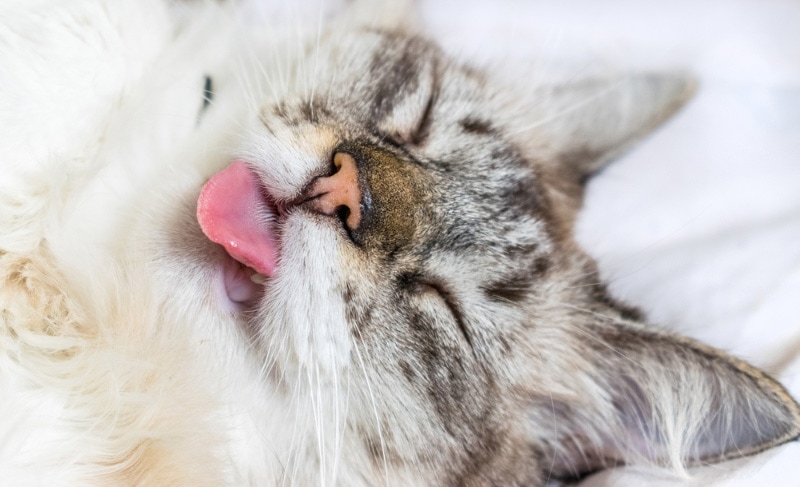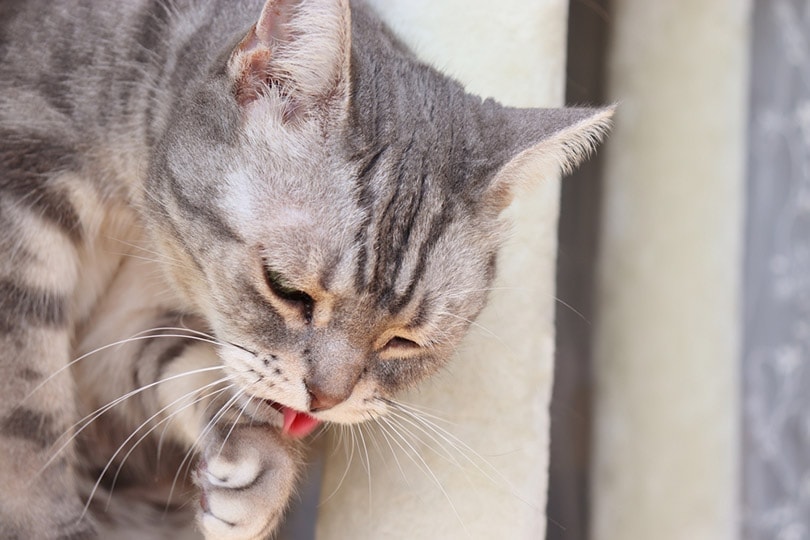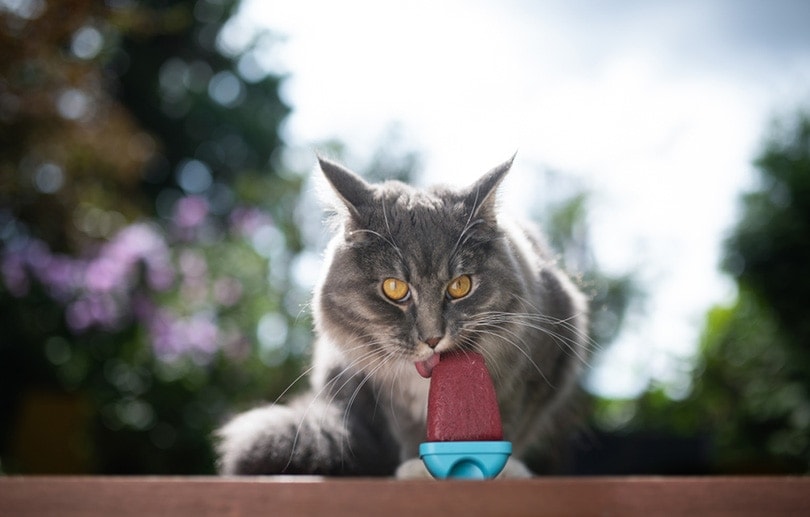How to Tell if a Cat Is Constipated: Vet-Approved Facts
Updated on
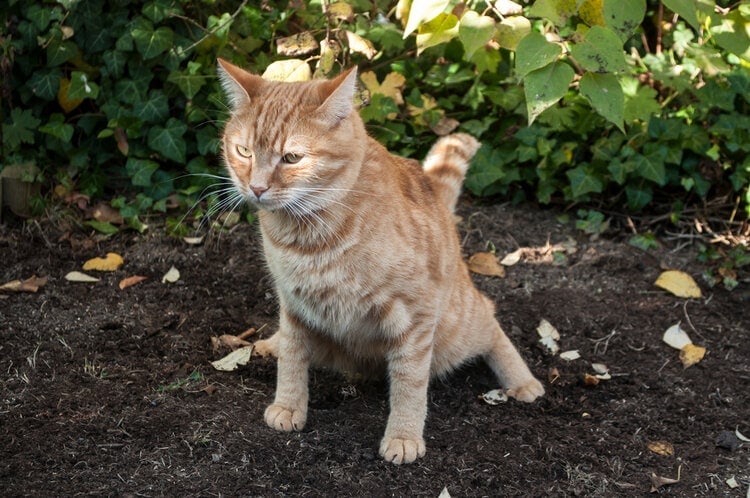
Like all animals, cats can become constipated. This is especially true when they are fed only dry food diets since cats need high moisture foods to maintain healthy hydration levels. Excessive grooming, kidney disease, lack of fiber, inflammatory bowel disease, and even anxiety and stress can also result in constipation.
So, as their human companions, we must spot the signs and symptoms of constipation in our cats to address the problem and ensure that it does not turn into a serious health condition. This article goes over how you can tell when your cat is constipated and what you can do about it.
 Signs That Your Cat is Constipated
Signs That Your Cat is Constipated
It is not always apparent when a cat is constipated, especially if you are not paying attention to its daily rituals and habits. Therefore, you should know the signs of constipation in cats so that you can quickly identify and address the problem whenever it arises.
- A litter box that is emptier than usual
- Hardened feces found on the floors
- Straining in the litter box
- Vocal distress during bathroom sessions
- Blood in stool
- A loss of appetite
Any sign of constipation should be treated as such, even if constipation is not the problem. If signs of distress or illness persist after addressing the constipation problem, then you know that there is a more serious problem to discuss with your veterinarian.
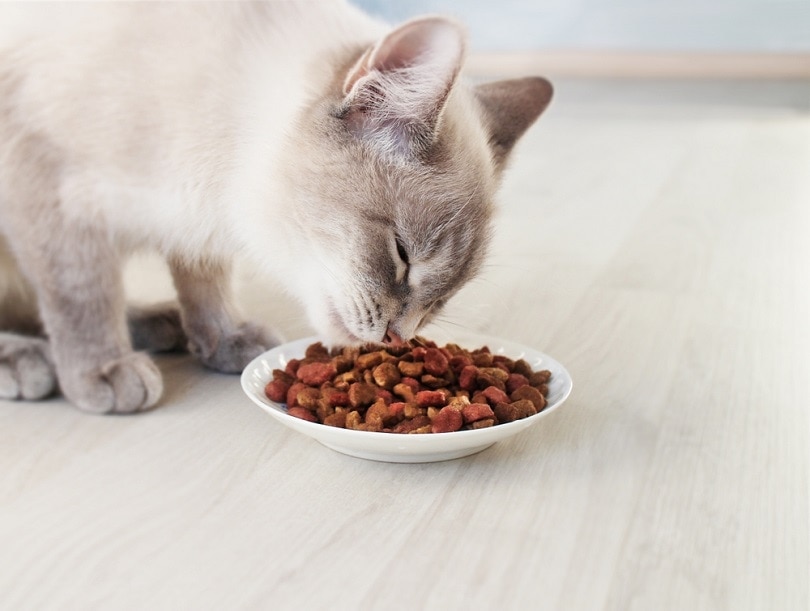
Things That Can Cause Constipation in Your Cat
Food is not the only thing that can cause constipation in a cat. Food that is higher in fiber than your cat is used or extra fatty foods can cause constipation. But other things are just as guilty as food is.
- Dehydration due to a health problem such as diabetes or kidney disease
- Long-term obesity
- The consumption of foreign bodies
- An accumulation of hairballs
Luckily, most reasons for the development of constipation in cats are avoidable or treatable. If you know what is causing constipation, find ways to avoid the cause. If you aren’t sure why your cat is constipated, your veterinarian can help you figure it out.
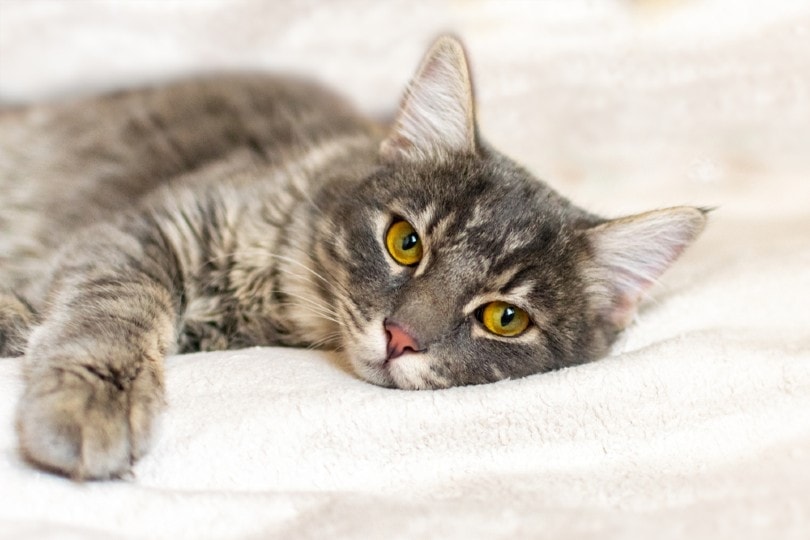
What You Can Do About Constipation in Your Cat
There are a few things you can do about your cat’s constipation once you discover that the problem has arisen. First and foremost, make sure that they have access to plenty of clean water to drink. If your cat doesn’t drink water, consider administering it through a medicine dropper or with a spoon. Water is necessary to get things moving and loosen up any hardened feces inside the body that have clumped together due to a lack of moisture.
Providing your cat with some extra fiber via supplement or whole grains can also get things moving again. Just be sure not to give your cat too much fiber, or it can backfire and cause more of a constipation problem in the long run. Give your cat just a portion of the serving size of any fiber supplement you choose to use.
Another thing you can do is provide your cat with some canned pumpkin at mealtime. Make sure sugar and other additives are not listed in the ingredients list. The pumpkin is considered a surefire remedy for constipation, diarrhea, and digestive problems in general. If these home remedies do not work, it is a good idea to consult with your veterinarian at your earliest convenience.
 A Short Recap
A Short Recap
Cats can become constipated for a variety of reasons. It is our job as pet parents to figure out when our cats are suffering and to take steps that will help relieve their discomfort. Some extra water, extra fiber, and a little canned pumpkin may do the trick. But don’t hesitate to call your veterinarian if you are unsure of how to help your cat.
Featured Photo Credit: NeydtStock, Shutterstock

 Signs That Your Cat is Constipated
Signs That Your Cat is Constipated